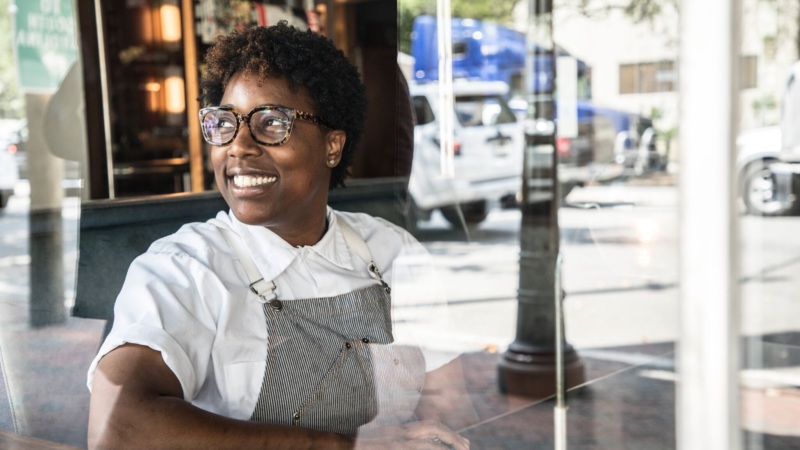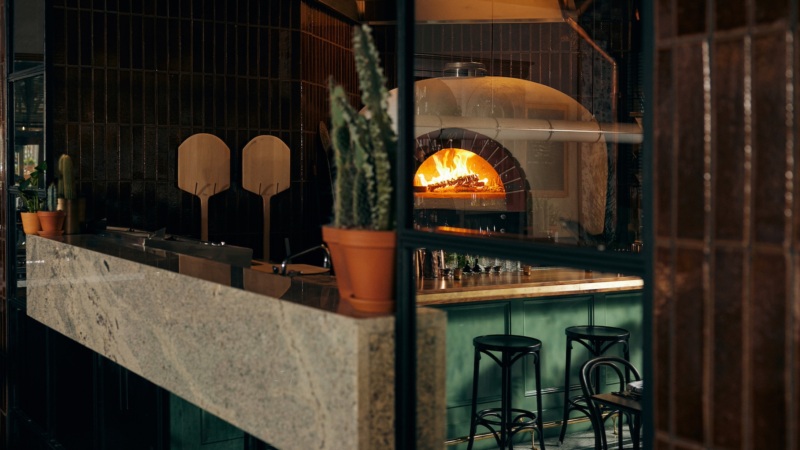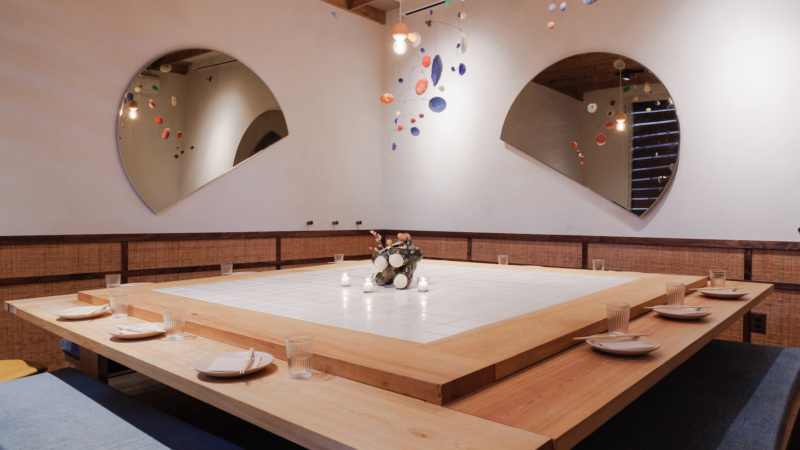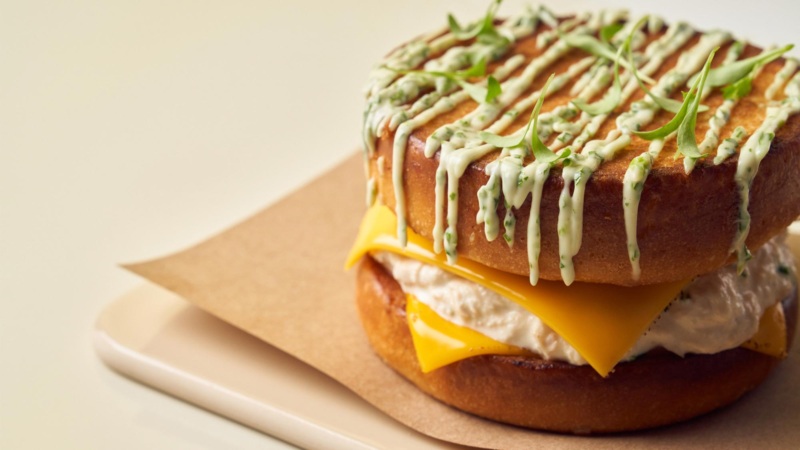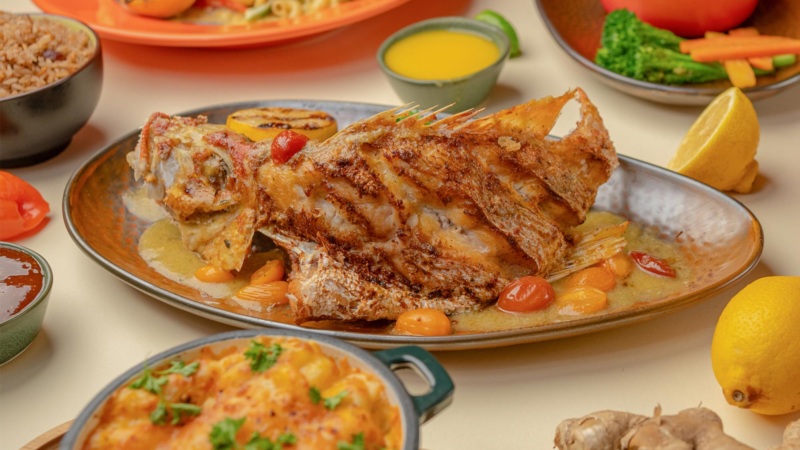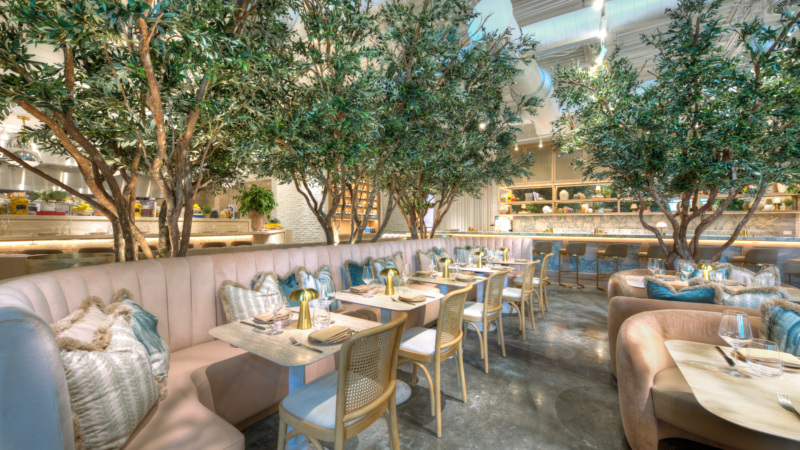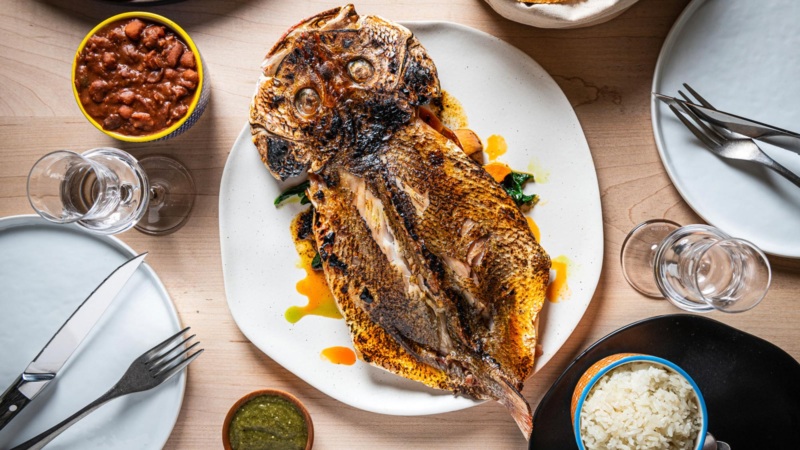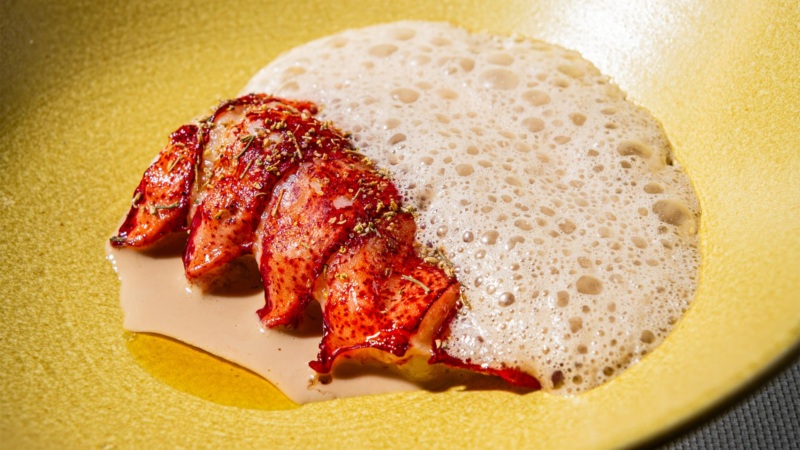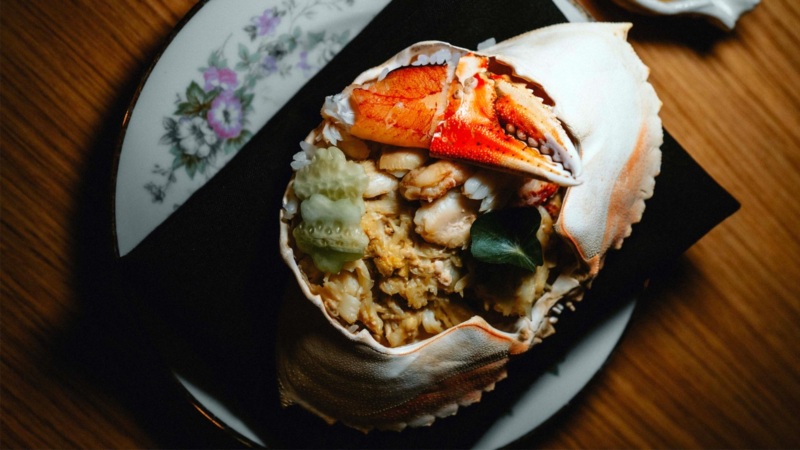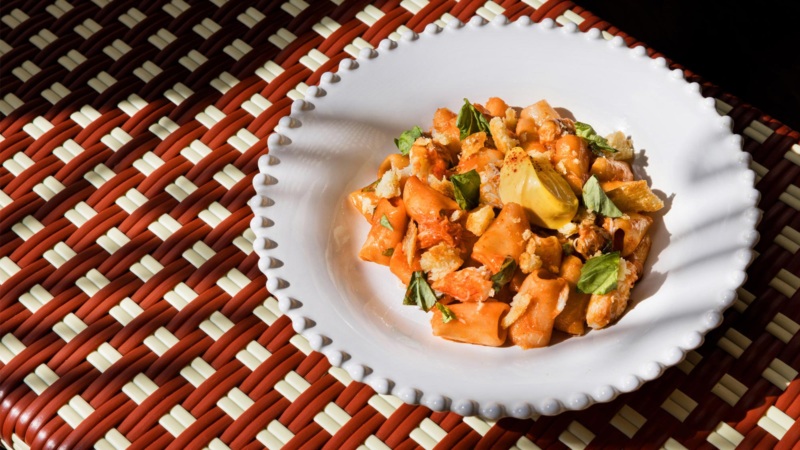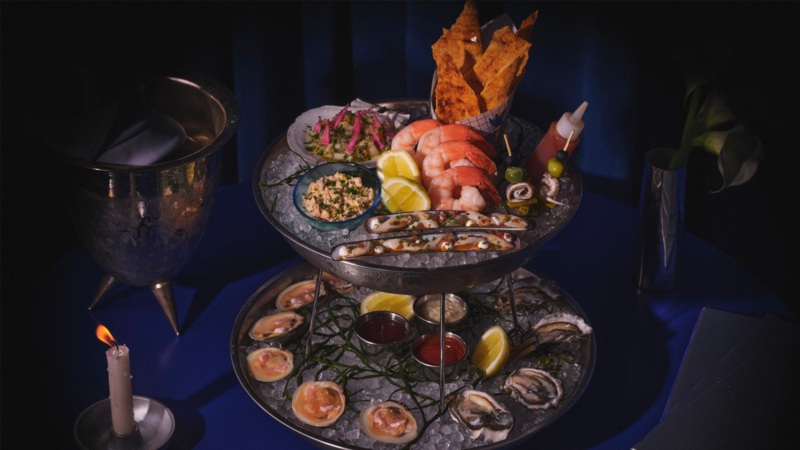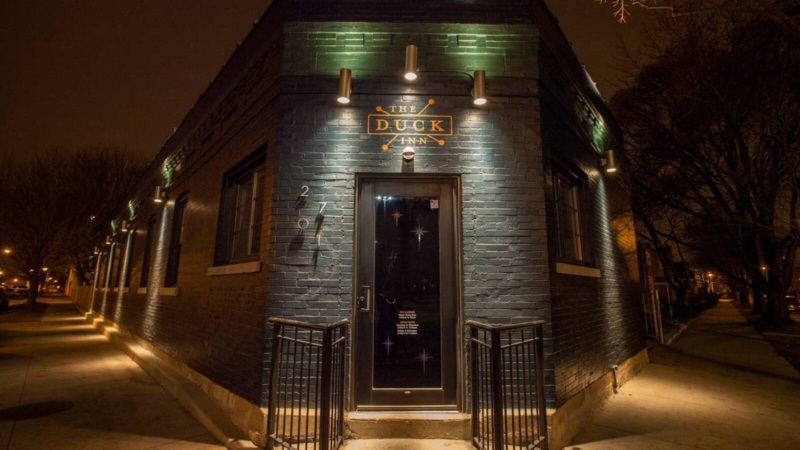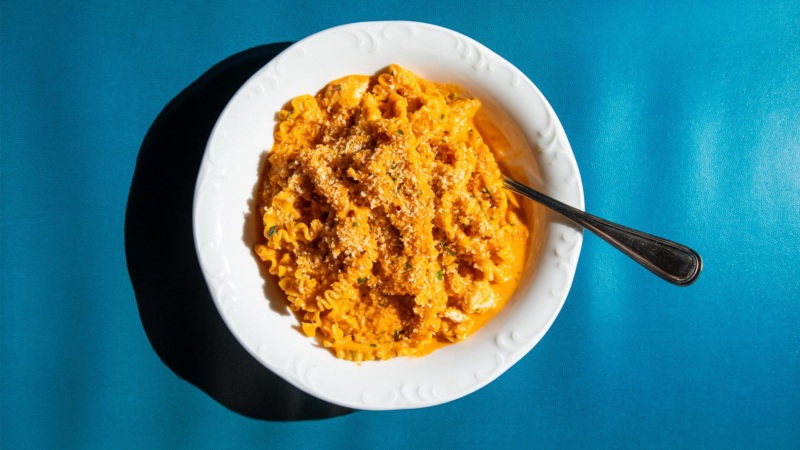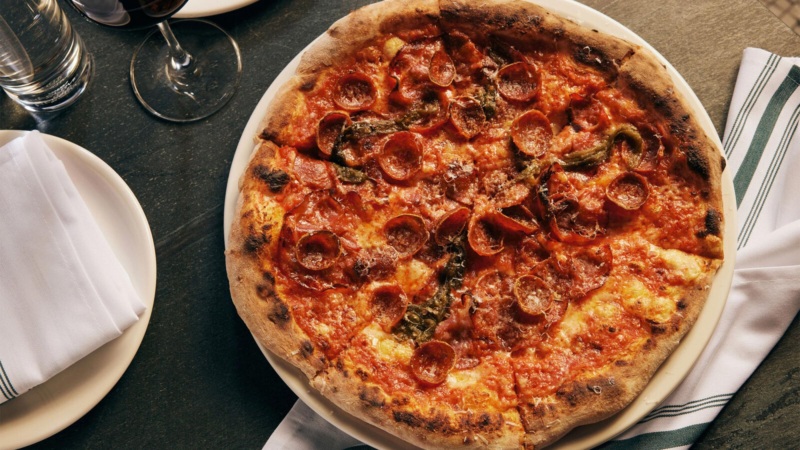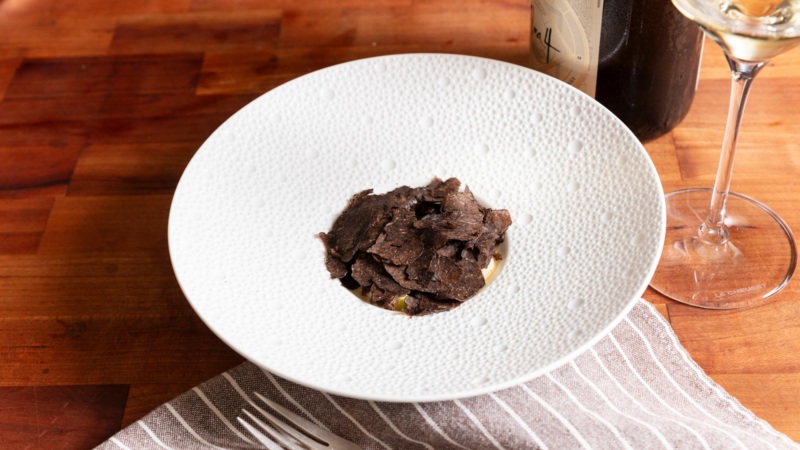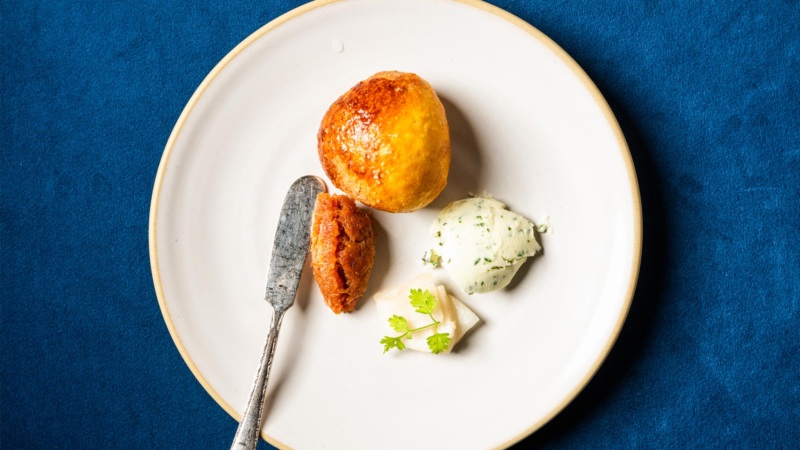
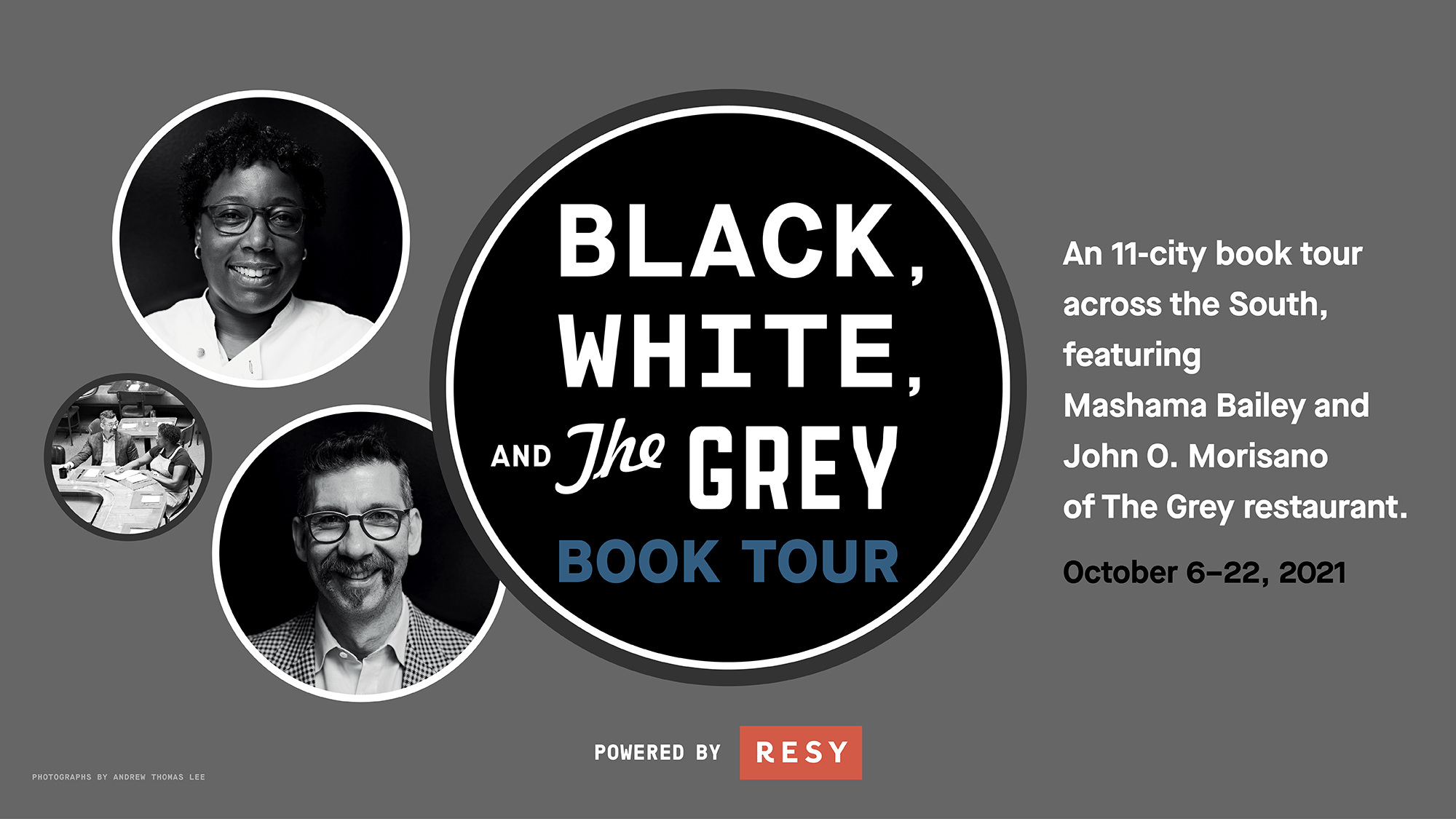
Mashama Bailey and John O. Morisano Will Explore the South via the ‘Black, White, and The Grey’ Book Tour
This fall, Mashama Bailey and John O. Morisano — partners behind The Grey in Savannah — are hitting the road to promote their culinary memoir: Black, White and The Grey. The book tour will span 11 cities across the South, starting in Raleigh on October 6 and wrapping up in Atlanta on October 22.
Bailey and Morisano will be the first to say: This isn’t a traditional book tour. The duo will be turning it into a road trip, and driving across the South to cities that are important landmarks of Southern food, where they will be teaming up with local restaurants for very special dinners.
See the tour schedule and participating restaurants below — and reserve your dinners via Resy. Read on to hear directly from Bailey and Morisano about why they decided to take their book tour on the road, how their perspectives on the South have changed, what they want diners to understand about the restaurant industry, what it means to be a leader today, and so much more.

Powered by Resy:
The Grey Book Tour
-
Raleigh
Oct. 6: Poole’s Diner — Book Now -
Asheville
Oct. 7: Cúrate — Call (828) 239-2946 -
Chattanooga
Oct. 8: St John's Meeting Place — Book Now -
Nashville
Oct. 9: Audrey — Book Now -
Memphis
Oct. 10: Park + Cherry — Book Now -
Jackson
Oct. 11: Colony Bistro / Southern Soigné — Book Now -
Dallas
Oct. 13: Meridian — Book Now
-
Houston
Oct. 14: Traveler’s Table — Book Now -
New Orleans
Oct. 15: Compère Lapin — Book Now -
New Orleans
Oct. 16: Turkey and the Wolf — Book Now -
Mobile
Oct. 19: Southern National — Book Now -
Birmingham
Oct. 20: The Essential — Book Now -
Atlanta
Oct. 21: Cold Beer — Book Now -
Atlanta
Oct. 22: Star Provisions — Book Now
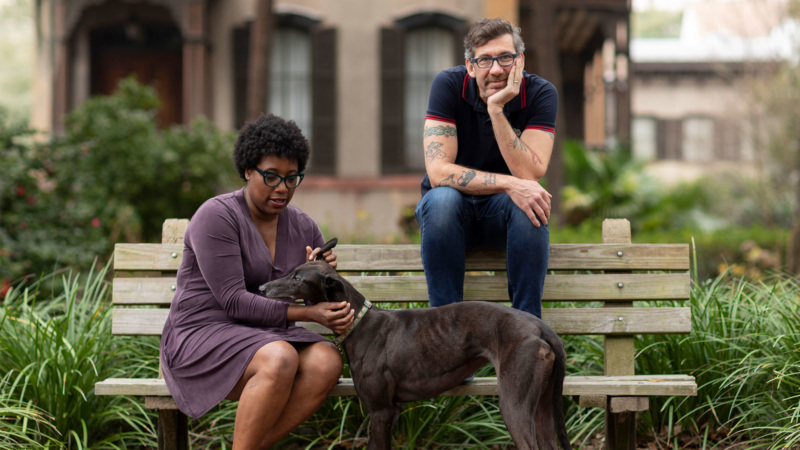
Resy: Between the road trip angle and the cities involved, this is clearly a non-traditional book tour — but maybe not entirely surprising for anyone who has read the book. But why take this approach?
Mashama Bailey: The short answer is that we the approached this way is because of COVID. We had to be creative in how we were going to meet our audience – and find out if we had an audience [laughs]. We wanted to do something different, but also something you could socially distance with. The traditional setting for a book tour is that you do these events in a book store in a room, with people and a moderator and people listening and a Q&A. This seemed a little more controlled, with a little more crowd control and natural social distancing. And for travel purposes, going on the road felt like the right thing to do, too. Because it is a non-traditional book.
John O. Morisano: When you write something, you hope that you have something to say and that people are interested in reading it. COVID was such a weird time to release the book, and like Mashama said, getting in a vehicle and driving around was born out of that. This tour — and these dinners — match what we do for a living: We’re in food and beverage, and we want to be with people.
Why these stops? Instead of hitting so many of the usual book tour “big cities,” you’re really just focusing on the South.
JOM: Really one of the main characters in the book is the South, and the people in it. Being Northerners and coming down, being exposed to the South has changed our perspectives on it, where we do business, how we serve our communities. These cities are the places that have been instrumental in shaping the good and bad of the South. We’re so invested and interested in the foodways of the South, so going to see other cities and celebrating those places helps share a central reason for why we were able to write this book.
We’re also going to see folks we’re friends with, and restaurants that really showcase the generations of Southern food. Ashley Christensen has shaped Southern cuisine for years, and has done so much important work. Over in Asheville, Katie Button is contemporary of Mashama’s. Then there’s a young generation like Zacchaeus (Golden) in Jackson, who worked for great fine dining chefs across America and went back home to open his own restaurant (Southern Soigné). That guy is going to change Southern food again. The ebb and the flow of the cuisine, and the generational development is great to see.
MB: I think the idea of camaraderie has always been at the forefront of my motivation for why I cook — and why I wanted to be a chef in general. I wanted to be a part of a community.
You mentioned changing perspectives. That seems to be a recurring theme in the book, too. How have your perspectives — about the South, about the restaurant industry — changed over the last two years in particular?
JOM: When I came here, I personally had very limited exposure to the South and had hardly spent any time here. Mashama coming down and becoming my partner and opening The Grey really changed my perspective — you learn about people and places and things.
MB: At first, I found it difficult to cook in Savannah because a lot of those foodways had dried up. In that way, it was so different from New Orleans, or Charleston, or Biloxi. What I discovered was that, in Savannah, those foodways had morphed to a more global perspective, so that narrow, specialized, regional view of why Savannah food made an impact was fading. That made me want to cook Southern food. I didn’t come to the South with that intent; I was thinking I’d do the kind of food I had been doing before.
That’s what shaped my perspective, to discover what’s special about Savannah, and what grew here. That, in turn, tapped into my childhood memories of eating off trees in my neighbors’ yards, running through pecan orchards — those things you pick up in childhood that you don’t think about. But those treats and foods really shape a region, and we were starting to lose those things. I wasn’t sure what Savannah food was — and now I’m working with different farmers and non-profits along the Georgia coast, and trying to figure it out.
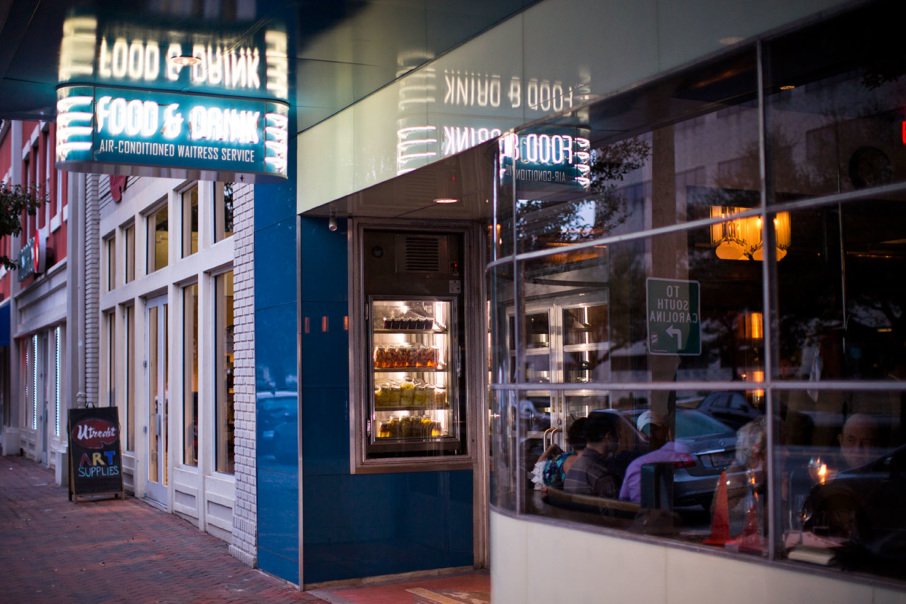
After everything that has happened in the last 18 months, what do you see when you look at the restaurant industry right now? What do you wish diners would better understand?
MB: I wish people would understand how much work goes into what we do, and how small the margins are. There’s not a lot of return. We do it for love.
Early in my culinary career, one person made a point to tell us that if we didn’t love what we were doing, we wouldn’t last. When you look at the last 18 months, that has become very apparent. Not only has our industry gone through a health crisis that impacts our well-being in countless ways, but it’s also changed expectations on what this industry can support, what people want from it, what they can take from it.
I think people should understand this is really a journey of love and respect. It goes through our food, how we treat our staff, how we work with our purveyors. And the return isn’t as big as you think.
What do you want people to take away from the book?
JOM: From a book perspective, I don’t think we knew what we wanted people to take away from the book until we were done writing it. Mashama has this line – our relationship wasn’t ready for the book we were writing. All of this discovery about how to be a better business partner and a better human being. To be empathetic and challenging at the same time with each other. It there’s one message that I hope readers take away it is that unless you really have an open honest discussion with people in your life who are important, you get stuck. If you’re not willing to put in the hard work — all of it — you’re hitting a glass ceiling where you can’t push through. You need something epic to break through. That’s sort of what the book hit for me: the honesty of who each of us was and the baggage we brought to the relationship.
It’s the work that matters. The work in relationships, and the work in this business. It’s not Instagram that matters or TikTok that matters. Those are tools. There’s so much self-promotion in the world. I know ours is a business that gets a lot of attention, but we just work hard. All we do is work hard.
MB: We’re also in a very fortunate position. We have a platform, and we have a great staff. We have these opportunities available and in writing this book, we hope to shed light on this partnership and maybe someone can use this as an example. Maybe someone can learn from this.
How do you see your own role in that?
MB: I’ve personally been reacting for the last seven years. I’ve not been very proactive. I was proactive initially, but then I’ve been keeping pace. There’s a whole world of people that look at me and see where I’ve come from, and where I’m at, and they want that for themselves. There’s a level of responsibility put upon me.
Some people work hard their whole lives and all they have is two nickels that they’ve been rubbing together, and others just catch lightning in a bottle. Johno and I caught lightning in a bottle. Now, I can shed some light on my story.

